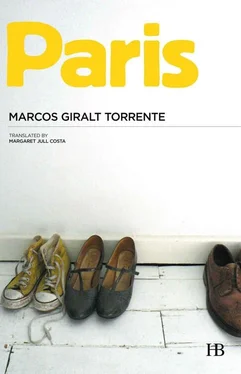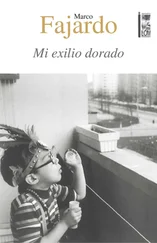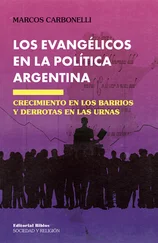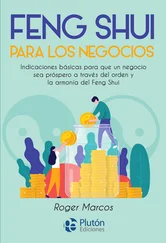Marcos Giralt Torrente - Paris
Здесь есть возможность читать онлайн «Marcos Giralt Torrente - Paris» весь текст электронной книги совершенно бесплатно (целиком полную версию без сокращений). В некоторых случаях можно слушать аудио, скачать через торрент в формате fb2 и присутствует краткое содержание. Год выпуска: 2014, ISBN: 2014, Издательство: Hispabooks, Жанр: Современная проза, на английском языке. Описание произведения, (предисловие) а так же отзывы посетителей доступны на портале библиотеки ЛибКат.
- Название:Paris
- Автор:
- Издательство:Hispabooks
- Жанр:
- Год:2014
- ISBN:9788494228452
- Рейтинг книги:5 / 5. Голосов: 1
-
Избранное:Добавить в избранное
- Отзывы:
-
Ваша оценка:
- 100
- 1
- 2
- 3
- 4
- 5
Paris: краткое содержание, описание и аннотация
Предлагаем к чтению аннотацию, описание, краткое содержание или предисловие (зависит от того, что написал сам автор книги «Paris»). Если вы не нашли необходимую информацию о книге — напишите в комментариях, мы постараемся отыскать её.
Paris — читать онлайн бесплатно полную книгу (весь текст) целиком
Ниже представлен текст книги, разбитый по страницам. Система сохранения места последней прочитанной страницы, позволяет с удобством читать онлайн бесплатно книгу «Paris», без необходимости каждый раз заново искать на чём Вы остановились. Поставьте закладку, и сможете в любой момент перейти на страницу, на которой закончили чтение.
Интервал:
Закладка:
Before that happened, and after I had found out about my father’s police record, my mother had spoken to me about his arrest and explained that the way it was carried out was as ruthless as it was unexpected. As she told me when she felt I was old enough to know, and as she continued to tell me over the years, my father had been in a state of extreme agitation for some weeks, and yet despite this and the fact that the dinner party had been his idea, and though she hadn’t exactly been feeling optimistic herself, she had never guessed that he was in any real trouble. She neither feared nor suspected anything until, halfway through that evening, he took her away from their guests and led her into the bedroom, where, from under the bed, he produced a suitcase she had never seen before, and which, with growing excitement, he set about opening. It wasn’t until she saw him take a small key from his pocket and open the last lock that something like a sixth sense stirred inside her consciousness. However, once he had removed the lock and opened the suitcase and turned to her smiling, any hunch she might have come up with herself paled in comparison when she saw that the case was stuffed with cash. She later described to me how it was arranged in neat bundles and looked brand new, as if it had come straight from the presses and no one, apart from him, had touched it. Always sparing in such details and reluctant to say much about them, she never told me what words were exchanged over that suitcase once its contents had been revealed and she was beginning to have some inkling as to where they had come from. She didn’t tell me, but I can easily imagine. After her initial perplexity, I guess my mother would have said, “What’s going on? Are you crazy?” and that he, still smiling, would have answered, “Don’t worry. We’re not in any danger.” My mother would then have responded rather sarcastically and he in a firm but conciliatory way. Only then, having properly absorbed what my father had said, would my mother have given in to the desire to learn the origin of that money. My father doubtless proved evasive, and after a time, during which the tension between them grew to the point where words became redundant, they rejoined their guests. Between that moment and the moment when the police burst into the apartment demanding to see everyone’s papers, I would not, I think, be wandering too far into the realm of speculation were I to say that they carefully avoided each other, my mother unable to think straight and wishing she had someone to confide in, my father observing her from a distance and not looking forward to the argument they would be sure to have once their guests had gone, but meanwhile enjoying his temporary good luck, blissfully unaware that someone was already heading his way to snatch that luck from him and confirm what his worst fears had been when he had first thought up his scam or someone else had planted the idea in his head.
II
Even though I may have to consider such disagreeable hypotheses as the product of mere haste or a sense of gratitude born of necessity, the question inevitably arises as to why my mother chose so badly. That isn’t intended as a reproach — that would be stupid. It’s the never-resolved temptation to turn her into a victim, to assume that she married my father out of ignorance and not because she thought she could make him change. That last possibility, though, is not only more probable, it’s also more realistic. Don’t we all believe ourselves capable of changing the behavior of those around us? And she was no exception. She thought she would have more influence over him than any of his other interests, that she would be able to impose rules on him, if not conventional ones, at least some minimally reasonable ones. Otherwise, I can’t understand her tenacity. I could understand her taking that first false step, but not the determination with which, for so many years afterward, she refused to abandon the many meandering paths of deceit he chose to follow.
I keep looking for a word to define him, but I can’t find it. The only one that comes into my head is “fly-by-night.” I like it because it suggests a degree of irresponsibility that fits well with the kind of person he became in the end and, at the same time, contains an element of madness essential to his character. I like it, but it falls short. It isn’t exact enough. It attracts more than it repels. It sounds too amusing, or cheerful, or frivolous, or innocuous, and he was neither cheerful nor frivolous, and certainly not innocuous. My father was somber, destructive, and selfish. Capable of dragging you with him in his fall, capable of ruining your whole evening, or however long it took to wheedle out of you the money he needed so that he could then buy a drink or a meal for someone he wasn’t asking money from, capable of lying obsessively even when the pain he might be inflicting was far greater than any shame or embarrassment he might feel were he to relent and acknowledge his deceit.
Obviously, he must have had something about him. I’m not saying he didn’t. We all carry within us a plan of what we are as well as what we could have been, and whether we end up being one rather than the other depends not on the appearance or disappearance of new characteristics but rather on the way in which certain already-existing characteristics win out over others. If my father was the way he was in my memory, it’s only because that particular combination of characteristics won out in the end, not because he had never been any other way or because he had lost the possibility of being any different. To know what he was as a whole, one would have to look in between those two poles, between what he could and could not be, between his potential to be different from the father I knew and the determination with which he devoted himself to destroying that potential. But I could easily get lost in a labyrinth, trying to reconcile the uncertainty and despair he caused with what my mother saw in his face one rainy day in Madrid when someone took him along to a party at her place, which he left, carrying off with him as plunder a far better overcoat than the one he was wearing when he arrived, and I don’t think I could find a midway point between what his image evokes in me and what my mother tried to see in him for so very long, which may or may not have deceived her and possibly inspired the penultimate step that was never proven to have taken place, never questioned or spoken about between us, and about which I will never achieve a sense of certainty I do not even seek. In order to find that middle ground, I would need to have shared in my mother’s first, dazzling vision of him or to be quite sure that, at some point, she stopped being deceived, and if the former is impossible because my opinion of my father only came about indirectly, the latter is equally impossible, because I have no idea if my mother’s view of him really did change or if, on the contrary, it was weariness, or prudence, or the final, definitive payment on account of a debt contracted long ago, or merely a sacrifice on the altar of her maternal responsibilities that finally made her want to be free of him and to put an end once and for all to the anxiety of never knowing where that constantly renewed hope was leading her.
Читать дальшеИнтервал:
Закладка:
Похожие книги на «Paris»
Представляем Вашему вниманию похожие книги на «Paris» списком для выбора. Мы отобрали схожую по названию и смыслу литературу в надежде предоставить читателям больше вариантов отыскать новые, интересные, ещё непрочитанные произведения.
Обсуждение, отзывы о книге «Paris» и просто собственные мнения читателей. Оставьте ваши комментарии, напишите, что Вы думаете о произведении, его смысле или главных героях. Укажите что конкретно понравилось, а что нет, и почему Вы так считаете.












